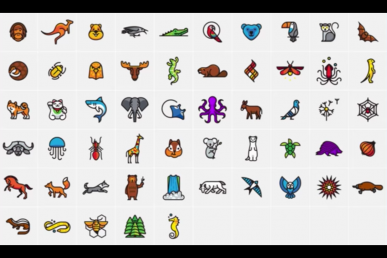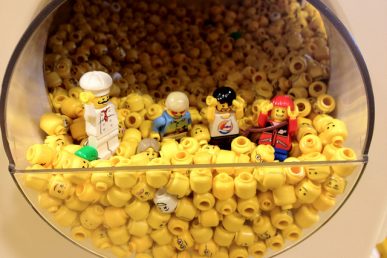Here’s the news from the OpenStack world you won’t want to miss — the musings, polemics and questions posed by the larger community.
Got something you think we should highlight? Tweet, blog, or email me!
In Case You Missed It
Give and take is a fundamental push-pull of any open-source project. This week, there’s in interesting debate about contributors versus consumers of OpenStack.
Kicking things off, Mark van Oppen of Blue Box says that both consumers and contributors are welcome in the OpenStack ecosystem.
"It’s a misconception that everyone who wants to use OpenStack wants to be a project contributor, because the learning curve associated with being able to use OpenStack is rarely counted in an ROI equation," he writes on the Blue Box blog. "In order to take OpenStack to the next level of adoption, we want to enable a broad spectrum of consumers by delivering private infrastructure-as-a-service."
Not everyone agrees.
"For an organisation to deliver value with OpenStack it needs to participate in the community, contribute what it wants, and help guide other effort away from pitfalls," writes Roland Chan on the [Aptira blog.](https://aptira.com/openstack-product-or-yeah-nah/?utm_campaign=OpenStack Now) "Each organisation gets the value from the effort expended by themselves + some fraction of the community’s effort, based on how aligned the organisation is with that effort."
What do you think? This is one of those debates that looks like it will have a long shelf life…
On the more hands-on side, Chris Evans, co-founder of [Langton Blue,](http://www.langtonblue.com ) offers up a meaty primer on OpenStack Cinder 101. He covers the fundamentals of Cinder, how it’s implemented, how to provision it, how it works with third-party storage arrays, and more…
For the 30,000-foot-view of the week, Wired has an interesting take on how containers are uniting tech giants.
"In the long run that’s better for everyone. Companies won’t stop trying to create their own innovative extensions to these standards that set them apart from the competition. But at least developers, and ultimately customers, won’t be left with fundamentally incompatible product. That’s progress."
https://twitter.com/mestery/status/614533322140745728
The easy button for OpenStack Swift gets better: Early this year we compared the work involv… http://t.co/AqgVjcSzFx #OpenStack #Cloud
— OpenStack Clouds (@OpenStackClouds) June 26, 2015
Upgrading Nova to Kilo with minimal downtime | Right Angles #openstack http://t.co/vPlYAcR6n8
— Mark Collier 柯理怀 (@sparkycollier) June 26, 2015
All you wanted to know about the new #OpenStack components version numbers, introduced in liberty-1 dev milestone: http://t.co/9c5Erm02NN
— Thierry Carrez @[email protected] (@tcarrez) June 26, 2015
#OpenStack Congress updates straight from @tim_l_hinrichs – what happened in Kilo & what's coming up for Liberty: http://t.co/W3pbLYIbuH
— OpenStack (@OpenStack) June 24, 2015
PayPal talking about their PaaS platform leveraging OpenStack and Docker #dockercon pic.twitter.com/bnC1FwSzm8
— Animesh Singh (@AnimeshSingh) June 23, 2015
https://twitter.com/ewindisch/status/613377904525733888
So long OpenStack community, see you soon: Let's call it a "ciao" and not an "addio."http://t.co/H2m5DW5TkN
— Stefano Maffulli @[email protected] (@smaffulli) June 23, 2015
Great OpenStack Summit session with @scottsanchez and @nikiacosta — really it's a guide to Cloud done right. https://t.co/rwmJEv5hIs
— Mike Mason (@mikemasonca) June 22, 2015
Very Clever! #openstack #ikea https://t.co/UX7EDRFjKC
— ICAL Systems (@icalsystems) June 23, 2015
From OpenStack to DreamHost: Welcome to the Team, @smaffulli! http://t.co/93CYzz4bE8 #OpenStack #CloudServices #OpenSource
— DreamHost (@DreamHost) June 23, 2015
Great talk by Matthew Treinish and Matt Riedemann about the #OpenStack gate and debugging failures therein https://t.co/CPli7Y7lAu
— Elizabeth K. Joseph (@pleia2) June 23, 2015
Best thing I've seen in weeks!
“@retr0h: How I @OpenStack https://t.co/96SRwq4DHv”
— cloudyparts (@cloudyparts) June 23, 2015
Excited to be in cloud city collaborating with my new @bluebox colleagues! #ibmcloud #OpenStack #Seattle
— Yesica Schaaf (@YesicaTech) June 23, 2015
https://twitter.com/mestery/status/613397653691367424
Cover Image/ by Alan Kotok // CC BY NC) // CC BY NC
- Demystifying Confidential Containers with a Live Kata Containers Demo - July 13, 2023
- OpenInfra Summit Vancouver Recap: 50 things You Need to Know - June 16, 2023
- Congratulations to the 2023 Superuser Awards Winner: Bloomberg - June 13, 2023

)










